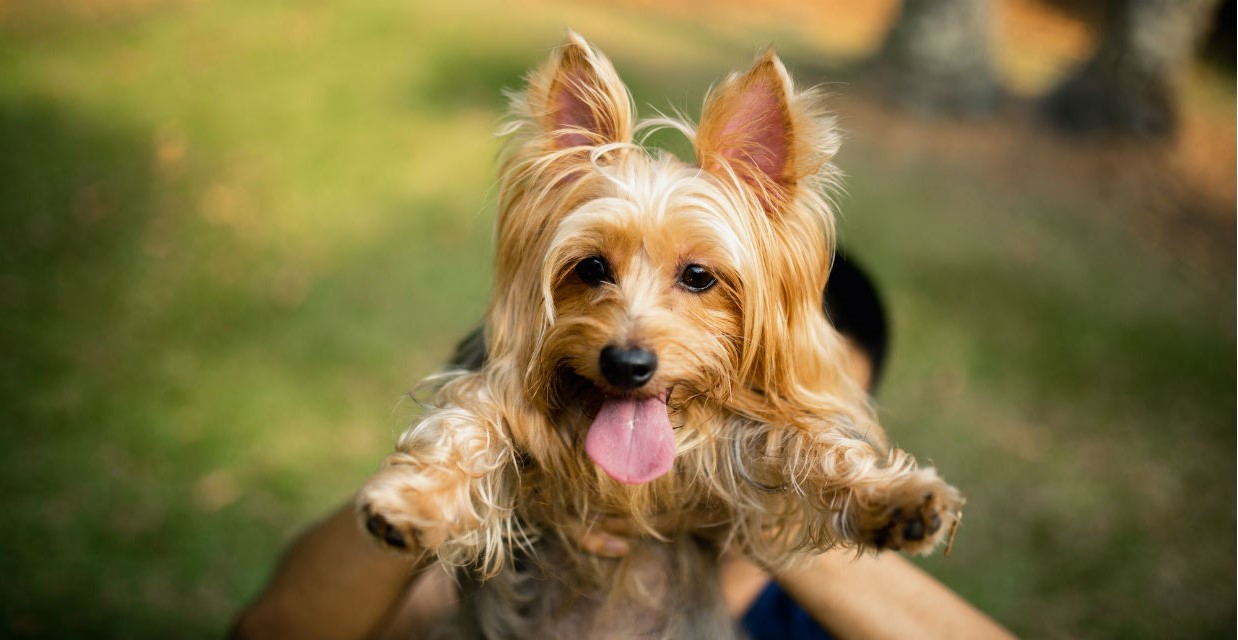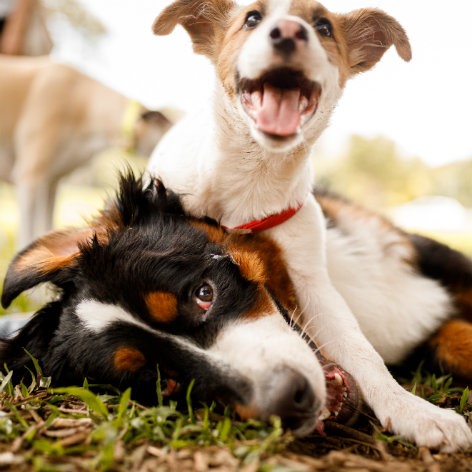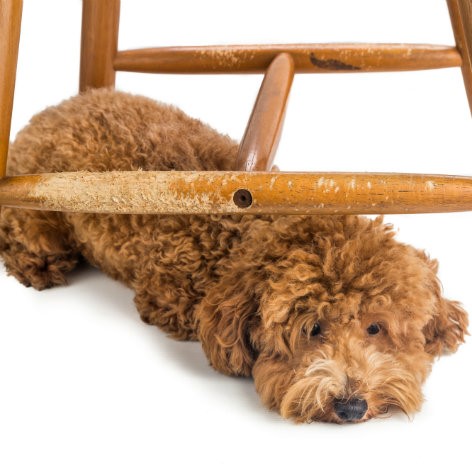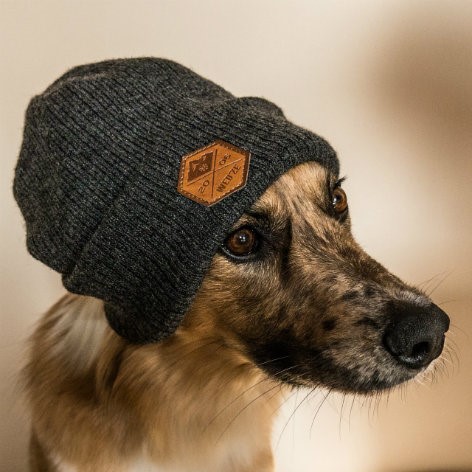We all enjoy spending time with someone who understands us, so it probably comes as no surprise to you that dogs are no different. That’s why knowing your dog’s personality type in your day-to-day can be immensely beneficial for your relationship. “It helps you be a more understanding and compassionate pet parent which helps strengthen the bond you share with your dog,” confirms animal behaviourist Dr Kate Mornement.
So let’s try understanding our dogs not only by the traits common to their breed, but as the individuals they truly are, to help shape the way you converse with one another, and for many fun times ahead.
Our dogs’ many faces
Dogs personalities can vary greatly, even within one litter, and the study of canine personalities is an ongoing process. The widely used Canine Behavioral Assessment and Research Questionnaire suggests eleven many varied personality dimensions in dogs.
So how do you know where on the spectrum you’ll find yours? Taking note of your dog’s reactions in different situations can help you gain an idea of their personality type and what makes them tick. Chances are, your pup’s temperament probably falls into one of the following categories – and you may recognise yourself in the process, too.
1. The confident controller
A confident dog enjoys being assertive in their desire to gain and maintain access to food and attention.
Regular training is important for this personality type, ensuring heaps of mental stimulation, and the opportunity to burn off energy.
They often thrive on treats and rewards, as they appreciate a strong relationship with their human. Keep in mind, as a confident controller, your canine buddy may not like being left alone for long periods.
Some breeds that could be thought of in this category are Labrador, German Shepherd, Dachshund, and Beagles. (Please keep in mind this is a general indication, and personalities will vary between individual dogs).
2. The independent loner
Independent dogs usually have a solid bond with one person. However, they may still be a little ‘socially distant’, especially toward others. If your dog is avoiding your pats, it’s best to respect their wish for space as constant affection may cause distress. Like people who aren’t touchy-feely, independent dogs often need the ability to manage contact with others on their own terms.
Unlike more insecure dogs, the independent loner tends to prefer spending time alone. However, regular quality bonding time is still important.
If averse to strangers, you could try to hit the park outside peak hours, or choose a quieter spot where they can chase the ball without interference.
Some breeds that could be thought of in this category are Greyhounds, Whippets, Poodles (all 3, but mainly Toy), Afghan Hound or Saluki. (Please keep in mind this is a general indication, and personalities will vary between individual dogs).
3. The affectionate socialite
Outgoing dogs make new mates wherever they go. They enjoy exercise and might appreciate a trip to the local dog-friendly cafe. The pet version of a hugger, they want to spend as much time as possible with you.
They like trying new games and appreciate mental stimulation. This personality type may be prone to over-excitement.
That’s why it’s important to have a regular training routine in place as affectionate dogs tend to need more help understanding boundaries.
Some breeds that could be thought of in this category are Pugs, French Bulldogs, Fox Terriers or Bichon Frise. (Please keep in mind this is a general indication, and personalities will vary between individual dogs).
4. The accommodating adapter
A friendly personality type, these gentle dogs usually love kids and slot easily into family life. A great way to build their confidence, and your connection, is to play games they enjoy. However, be careful not to unintentionally overwhelm them.
If they seem reluctant, it can be good to switch activities.
Training requires a gentle hand with this character and they’re likely to benefit from doggy socialising more than others. If their quiet character is a result of being around assertive animals, try to build confidence with lots of positive reinforcement. But make it a priority to read their cues, so you know when it might be getting too much for them – a little meekness might be part of their nature, so it’s important to respect their boundaries.
Some breeds that could be thought of in this category are the King Charles Cavalier, Golden Retriever, or Boston Terrier. (Please keep in mind this is a general indication, and personalities will vary between individual dogs).
5. The shy worrier
If you have a nervous dog, know they need lots of affection. To overcome stress, they need you to gain their confidence and be patient when slowly introducing new experiences.
It’s important not to over-stimulate the shy worrier as pushing an insecure dog too far could lead to a fearful response.
It’s also important to understand whether shyness is really fear or anxiety resulting from past trauma. A rescue pet could be afraid of particular items or situations for a reason. Likewise, a dog in the company of another dog may become reserved. That’s why constant, affectionate care is best.
Generally it's not a case of breeds specifically falling within this dog personality type. More often it is dogs of all breeds that have come from a rescue who may have some abandonment issues. (Please keep in mind this is a general indication, and personalities will vary between individual dogs).
6. The assertive defender
For some dogs, guarding their humans can be a character trait, and for others, it can be a symptom of underlying fear or anxiety.
Generally, this personality type will benefit from a relationship built on trust and mutual respect.
Exercise and a quality training regime that includes positive reinforcement to gently modify their behaviour may help them feel calmer and more secure.
If your dog has this type of personality, and you’re considering bringing another dog into the home, be aware that introducing a second assertive dog may lead to tension and potential conflict.
Some breeds that could be thought of in this category are the Doberman, Chihuahua or Australia Cattle Dog. (Please keep in mind this is a general indication, and personalities will vary between individual dogs).
Across all of these personality types, be aware of changes in personality.
Dogs can have a mix of these traits of course; because like people, they’re unique and complex creatures. Being removed from their comfort zone, changes to your family and their home environment, or simply ageing can have a great impact on a dog’s psyche.
As dog owners, we know that in times of illness or stress, our furry friends may exhibit anxious behaviour. They may even reflect our own emotional state. If this is the case, remember to spend time with your dog to relax and enjoy each other’s company. You’ll then get an idea of why each of you behave the way you do, which can help you support each other through challenging times.
Taking the time to know your dog’s personality goes a long way toward bringing you and your dog closer.
“It helps prevent misunderstandings that may cause undue stress to your dog, resulting in undesired behaviour,” Dr Mornement explains. Being mindful of their preferences avoids causing your furry friend unnecessary distress and helps maximise your quality time together.
The information in this article has been reviewed and endorsed by Dr Kate Mornement, a qualified animal behaviourist. While the above is a great guide to personality types, it’s best that you speak with your vet if you have concerns for your dog’s behaviour.








